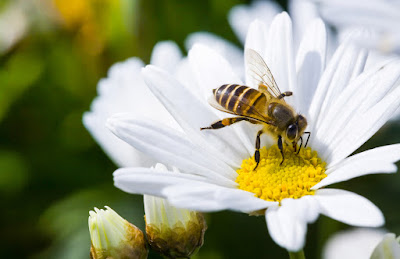The Process of Pollination
As many may already know, the first and most important benefit of bees is that they are master pollinators! Bees carry pollen from plant to plant and flower to flower, which essentially assists in the reproduction of plant life. In fact, bees are responsible for pollinating nearly 85% of all food crops for humans, as well as a number of crops that are used to feed our livestock. Bees are such an essential part of pollination for food source, that research has shown that the nonexistence of bees could cause an environmental collapse!
Offering More than a Food Source
Both plants and animals alike owe many thanks to the bees of the world, but perhaps humans owe them the most appreciation. Our relationship with them began as early as the year 6000 BC in Spain when humans began utilizing their honey as a food source, medicine and form of currency, wax as a sealant and for candle-making, and of course, a bounty of actual fruits, vegetables and nuts.
Bees are Natural Environmental Indicators
The mysterious decline in bee populations worldwide is a clear sign of something going awry in the environment. Honey bees, thanks to their morphological features, and also bee products are regarded as good indicators of environmental pollution by toxic substances, such as heavy metals, radioactive elements, or persistent organic pollutants such as pesticides. We at A B Pest Control & Insulation know and appreciate the value that bees provide to our environment. That's why we do what we can to protect their existence, from safely removing and relocating nests to using pest control treatments that are safe for bees.
BEE Positive You're Using the Right Pest Control Company!
Bees shouldn't be seen as loud, buzzing pests that like to sting. Instead, let's acknowledge the benefits of bees to the world via honey, sustaining plant life, various food sources, and their positive impact on humans and other animals. If you've got pest problems, be sure to call on A B Pest Control and Insulation for your pest control needs!
LAKE OF THE OZARKS
PEST CONTROL COMPANY
www.abpest.net
Like us on Facebook
Follow us on Twitter
Follow us on LinkedIn
Like us on Facebook
Follow us on Twitter
Follow us on LinkedIn




No comments:
Post a Comment